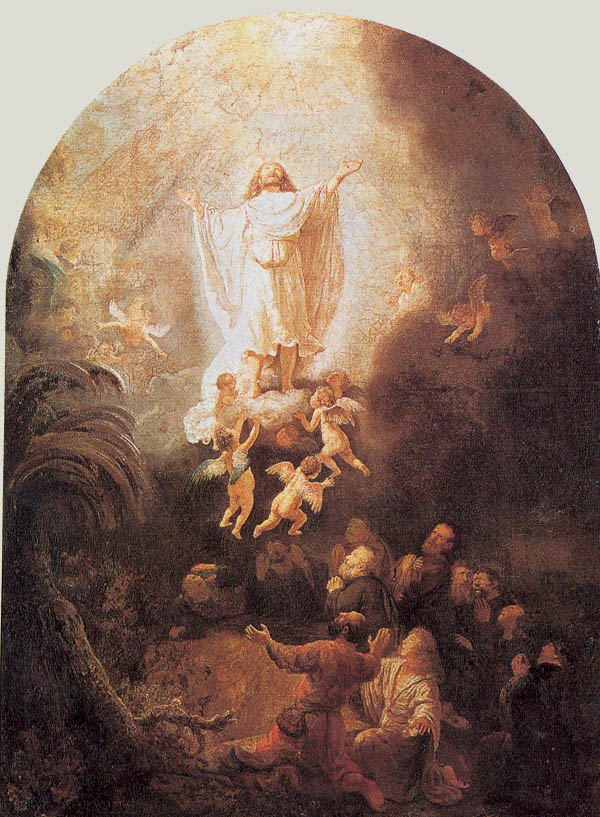I was talking with one of our members recently about St.
John’s mission to the wider community and she told me about a letter in one of
the local papers from an Occupy activist who had been protesting the eviction
of low-income tenants from the Petaluma Hotel by its new owner. The author raised a question that had pricked
her conscience—“Where are the churches?”
Why weren’t members of Petaluma congregations acting on the biblical moral
imperative of defending the poor?
It’s a good question, one that I take personally to heart,
and it reminds me of a man I met seven or eight years ago on vacation with my
family. My brother had let slip to some
of the other guests at the resort that I was a priest, and this fellow caught
me by myself a little later and took the opportunity to vent his frustration
with the churches for not stopping the invasion of Iraq. I didn’t bother pointing out to him all the
fruitless efforts that millions of Christians had made to do just that. Instead, I asked him when he had last been to
church. He said he left the church in
disgust when his Roman Catholic priest had failed to take a stand against the
Vietnam War, which would have placed it thirty years in the past.
In a way the question “where are the churches?” is an
underhanded compliment. It implies the
recognition that the churches are unique institutions, and ought to be the
moral conscience of society. But how can
the church take responsibility for being the conscience of a town, or of a
nation, when the people of the town won’t take responsibility for the church? There seems to be an assumption underlying
these complaints that the churches are sitting on large reserves of social and
political capital and their members are just too lazy or complacent to put it
into play. But the churches I’m familiar
with, at least, are comprised of people who care deeply about the common good
and want to make a difference in the world, and who are, indeed, giving
generously and working hard to do what they can. But these churches are also half-empty, and
struggling to survive.
Someone might accuse us of devoting too much energy to
carrying on our worship services and maintaining our organizations, energy that
could otherwise be spent on social action.
And that accusation carries weight with us, not because it comes from Occupy
activists, but because it comes from the Hebrew prophets. What makes people who have not been to church
in thirty years still look to us with hope for a more just and peaceful world, are
the transcendent demands of God. We may
perceive those demands imperfectly, we may fall far short in our obedience, but
we, with the other churches, synagogues, temples and mosques, are the only
places in society where they are publicly spoken, where they are given a
hearing and meditated on, studied and honored.
And that alone requires work. God’s demands and instructions do not come to
us as a series of easily-diagrammed steps, or pre-digested principles. We inherit them in the form of traditions,
biblical, cultural, liturgical, that are interwoven with the complex life and
history of a great, and not always completely-functional, family. It is not easy to understand what this
inheritance is, let alone sort through it for the precious treasures that meet
the urgent need of our own day. To find
those gifts, and hold them up, and pass them around the community, so that they
can transform our fragmented, individualistic existence into the life of a
single body acting in wisdom and compassion—this is a long, slow, labor of love.
We have a responsibility for the gifts that we have
inherited that prevents us from spending ourselves too impetuously or
carelessly. We have a grave
responsibility to pass these gifts on to the next generation, in the midst of
social and cultural currents that are antithetical to that process. We have the responsibility of honoring and
caring for our elders, and the sick and differently-abled and poor in our own
midst. We have the responsibility of
nourishing our community with beauty and joy, so that life is more than grim
struggle. Most of all, we have the
responsibility of worship, of embodied, collective praise of the transcendent
mystery that alone can make all our other work good, and enduring, and free.
People who don’t know about these gifts don’t value them, so
it is understandable that they look for some other proof of the churches’ social
purpose. They will point to the example
of Jesus, and hold us to it, as a universal standard that they have as much
right to claim as we do. And they are
right to do so. But while the gospels narrate many dramatic
episodes in the ministry of Jesus, and quotations of things he said, they give
us almost no descriptive information about how he lived his life, generally speaking. There is one notable exception to this, and
it is found in the Gospel of Luke, chapter 4, verse 16, where we read, “When he
came to Nazareth, where he had been brought up, he went to the synagogue on the
Sabbath day, as was his custom.”
Where are the churches?
In the yellow pages. On the
internet. Ours has a tower and a steeple,
which makes it easy to spot. It’s been on the same corner for over 150 years, which suggests that it’s doing something
right. Where are the churches?--Where are you?




